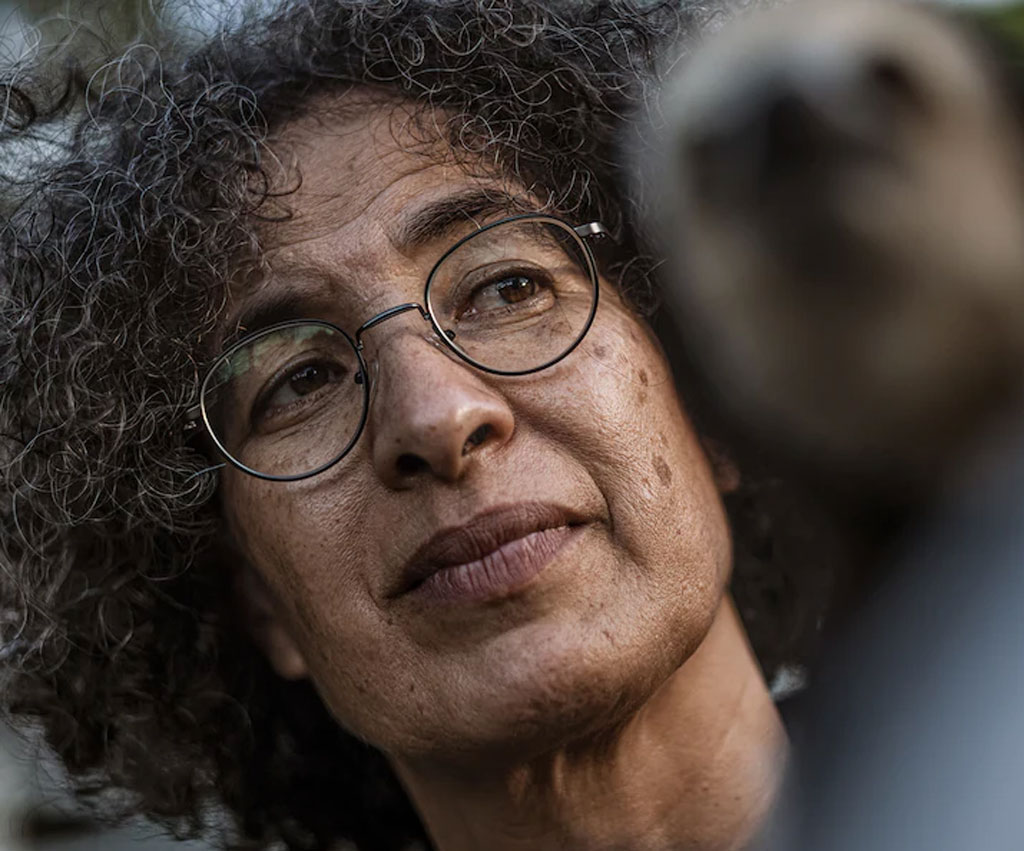Monique Pool
Founder & Director

Monique Pool, known to many as the “Sloth Lady,” is somewhat of a celebrity in Suriname’s capital city, Paramaribo.
Founder and director of Green Heritage Fund Suriname and a CNN Hero, Pool is the person people call if they find a sloth who needs to be rescued. When she pulls up in her van, which is recognizable by a sloth decal, residents and tourists photograph her as she works to take sloths from places they shouldn’t be, due to the loss of their forest habitat, encroaching urbanization and climate change. For a week in December 2019, before the pandemic began, Justin Mott photographed her, too.
Mott is an American photojournalist living in Vietnam. He has always been an animal lover, so a few years ago he decided to start Kindred Guardians, a long-term, self-funded project that documents people around the world who have dedicated their lives to animal conservation. He learned about Pool from a friend who works for Welttierschutzgesellschaft (WTG), an animal welfare organization. After being introduced to Pool, Mott scheduled an eight-day trip to Suriname and hoped that he’d witness a sloth rescue during that week.
Pool, 56, was born in the Netherlands but has lived most of her life in Suriname, a South American nation north of Brazil. She is a Surinamese national and loves her country and its wildlife. She was a translator but got into sloth rescue when she was looking for her lost dog at a shelter over a decade ago. The shelter did not have their dog, but it did have a baby sloth who needed help. Pool couldn’t resist and took in the sloth. In 2005, she started the Green Heritage Fund. Her organization has rescued more than 1,000 sloths since its beginning.
Mott says Pool’s fame grew after an event in 2012 that she refers to as “Slothageddon,” or a Sloth Armageddon. On that day, Pool and a group of volunteers rescued over 100 sloths from a fragment of forest that was being developed in Paramaribo. Pool took all the sloths into her home and rehabilitated them before returning them to the wild. Pool says that the biggest threats to sloths come from climate change, especially droughts, deforestation and urbanization.
Pool works relentlessly to rescue the arboreal, slow-moving mammals and return them to the wild. Her organization is funded by her own money, private donations and help from German nongovernmental organization WTG. With no formal background working with sloths, she has learned everything she knows from her own research and with help from experts in Costa Rica and Brazil. When Pool is called about a sloth, she will go retrieve it, even in the middle of the night, and bring it back to her rehabilitation center to check on its health before almost immediately returning it to the wild.
After a few days with Pool, Mott says he started to notice that she is always looking up. He says that she was always hyperaware, looking up into the trees while she was walking, talking or even driving. She is constantly looking for fluff in the trees along roadsides and near new housing developments, to see whether there’s anything she can do to help. Mott says Pool is nervous about the future for sloths, but remains optimistic that Suriname can be a good example of conservation for the rest of the world.
